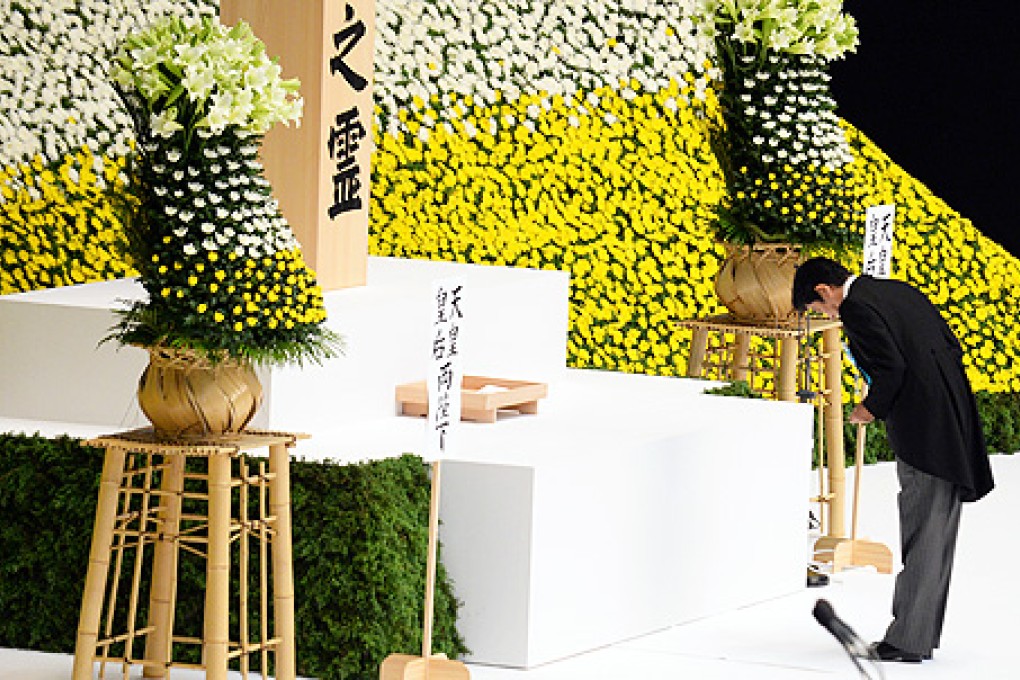Update | Abe's Yasukuni war shrine concession won't appease Beijing
A ritual offering via a party member will only further damage ties, say Chinese analysts

Japanese Prime Minister Shinzo Abe is expected today to make a ritual offering to the Yasukuni shrine instead of actually visiting the monument in an attempt to appease China while satisfying his conservative base.

An offering today, the emotive anniversary of Japan's defeat in the second world war, would highlight the fine line Abe seeks to tread. The offering would be made through a representative of Abe's ruling Liberal Democratic Party (LDP), Japanese media said.
A similar move in April only infuriated China and South Korea, both victims of Japanese wartime aggression.
"Abe's ritual offering through a representative of his Liberal Democratic Party instead of paying a personal visit does not make anything different in terms of displaying his attitude toward the history of Japan's former militarism. Rather, Chinese people, as well as the Chinese government will see such an act as a display of 'no remorse' attitude over wartime history," said Liu Jiangyong , a Japanese affairs expert with Tsinghua University's Institute of International Studies.
The Yasukuni shrine commemorates Japan's war dead, including 14 people convicted of being class-A war criminals by an Allied tribunal. Also enshrined are foreign troops who died fighting Japan, but Yasukuni is typically seen by China and South Korea as a symbol of Japan's former militarism, and visits there by Japan's leaders are considered controversial.
Neither the prime minister's office nor LDP headquarters could confirm the media reports.